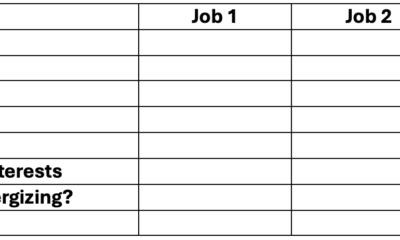Leadership
How to Train Around Soft Skills

Developing Future Leaders Through Soft Skills Training
Ascending the ranks within an organization often hinges on excelling in a specific role, showcasing potential for leadership. However, being adept at a particular task does not automatically translate to effective leadership. Recognizing this, executive coach Marcel Schwantes emphasizes the importance of soft skills training for emerging leaders in a recent Inc. article. Schwantes stresses that technical proficiency does not necessarily equate to leadership prowess, underscoring the need for a distinct skill set when managing interpersonal dynamics.
One critical aspect of soft skills training lies in conflict resolution. Schwantes advocates for preemptive conflict management to maintain team cohesion and foster a constructive work environment. By identifying potential triggers like resource disputes and burnout, leaders can proactively address conflicts before they escalate, preserving a positive team dynamic.
Effective leadership involves recognizing and addressing conflicts that can disrupt team dynamics.
However, conflict resolution is just one facet of the multifaceted skill set required for future leaders. In a recent Harvard Business Review article, Rebecca Knight highlights empathy and adaptability as essential leadership qualities. As individuals ascend the corporate ladder, the erosion of these traits underscores the necessity for soft skills training. Research indicates that power can diminish empathy, leading leaders to prioritize their opinions over others’ perspectives. To counteract this trend, actively seeking diverse viewpoints and integrating new information becomes paramount for effective management at all levels.
Experts recommend cultivating emotional openness, flexibility, self-awareness, and strategic disruption skills to enhance leadership capabilities. Strategic disruption entails challenging teams to innovate and improve by encouraging feedback and suggestions during meetings. By fostering a culture of continuous improvement, leaders can harness the collective intelligence of their teams.
In light of the emphasis on soft skills training, organizations should reconsider the conventional approach to identifying future leaders based solely on technical proficiency. While understanding the intricacies of an organization is crucial, leadership potential extends beyond departmental expertise. Individuals who naturally exhibit qualities like empathy and conflict resolution should be prioritized for leadership roles, as these soft skills are integral to effective management.
By investing in comprehensive soft skills training, organizations can nurture a new generation of leaders equipped to navigate complex interpersonal dynamics and drive organizational success.
The post How to Train Around Soft Skills appeared first on Elite League.
-

 Professional Development1 month ago
Professional Development1 month agoDrawing up your strategy
-

 Personal Growth2 months ago
Personal Growth2 months agoSucceeding as a ‘parentpreneur’: Top tips
-

 Videos2 months ago
Videos2 months agoGreat Leaders INSPIRE Others To Do Great Things
-

 Productivity1 month ago
Productivity1 month agoHow to Increase Remote Work Productivity
-

 Productivity2 months ago
Productivity2 months agoTips for Boosting Work Productivity
-

 Productivity2 months ago
Productivity2 months ago5 Ways to Increase Your Personal Assistant’s Productivity
-

 Leadership1 month ago
Leadership1 month agoHow to Tackle Big Challenges
-
Leadership1 month ago
Cutting Through the Clutter of Internal Communications

























